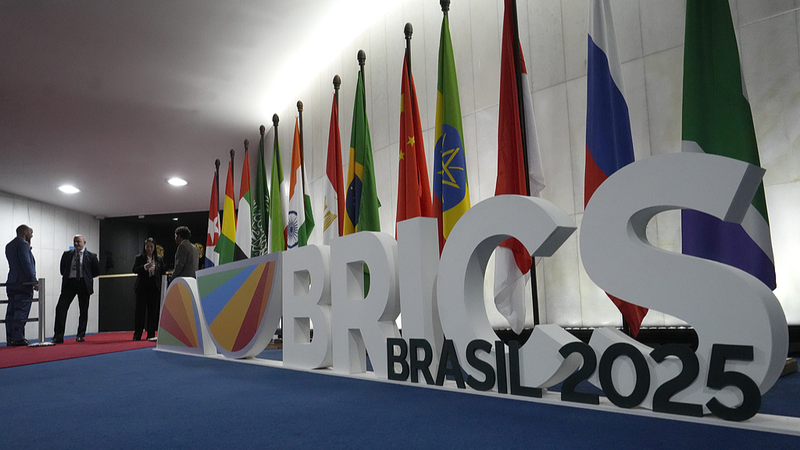The 17th BRICS Summit kicks off July 6-7 in Rio de Janeiro under the banner “Strengthening Global South Cooperation for more Inclusive and Sustainable Governance.” As regional conflicts and rising protectionism reshape the world, nearly half the planet's population—BRICS nations—will spotlight priorities from health and trade to AI governance and climate action.
Brazilian hosts outline a packed agenda: boosting joint health initiatives, driving trade and investment, tackling climate change, shaping AI rules, fortifying a multilateral peace system, and deepening institutional ties. Experts say all eyes are on how BRICS will voice a united stance amid the Russia-Ukraine war, the Israel-Palestine tensions, and the recent Israel-Iran clash.
“This year’s geopolitical landscape has more uncertainty than ever,” says Wang Youming of the China Institute of International Studies. He notes that Trump's tariffs have hit all BRICS members, making their collective voice on global trade and economic governance more crucial than ever.
Expanding its reach, BRICS welcomes new member Indonesia and 10 partner countries for the first time. This growth reflects the bloc’s evolution into a hub for South-South cooperation. Over two decades, BRICS launched the New Development Bank and the Contingent Reserve Arrangement to fund infrastructure projects and offer emergency financial support, challenging traditional Western-led systems. Platforms such as the BRICS Business Council further foster cross-border investment and create new opportunities through joint projects.
Data from the China Institute of International Studies shows intra-BRICS trade has surged by 10.7% annually over the last ten years—more than triple the global average. In 2023’s first seven months, China’s trade with fellow BRICS nations reached 2.38 trillion yuan ($332 billion), a 19.1% jump and 10.1% of its total foreign trade.
In response to sweeping U.S. tariffs, BRICS members are diversifying trade partners in Africa, the Middle East, and Asia Pacific, while exploring local currency settlements to reduce reliance on the U.S. dollar. At the May trade ministers’ meeting, they urged adherence to World Trade Organization rules and condemned rising unilateral tariffs and non-tariff barriers.
As the Rio summit unfolds, BRICS leaders aim to resist protectionism, strengthen multilateralism, and leverage complementary strengths in digital, green, and supply chain industries—charting a path toward inclusive growth and sustainable development for the Global South.
Reference(s):
BRICS helps stabilize global economy amid rising protectionism
cgtn.com



